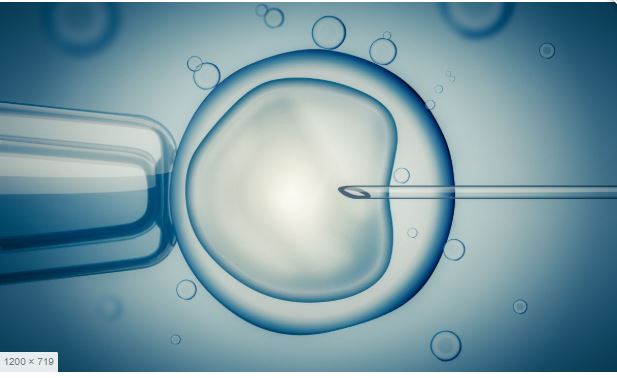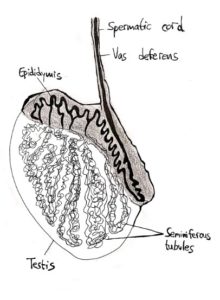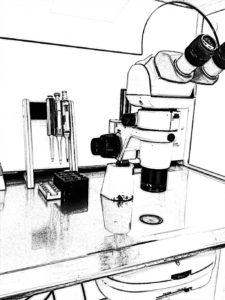Part of determining the factors that contribute to male infertility is to conduct a thorough general physical examination which includes 1) palpating on the testicles on each side to know if any problem related to undescended testicles, neonatal testicles, or retractile testicles is the cause of infertility; 2) examining the size of the testicles (the normal sized testicle is a sign that sperm production is not hampered by any means, whereas a small and firm testicle often indicates some problem with sperm production); 3) the testicular volume will be checked (should range between 15-25 cm2); 4) the epididymis will be check for any swelling or congestion (blockage of sperm transport into the epididymis might be causing it to swell); 5) examine the testicles visually for signs of Varicocele or dilated veins within the scrotum; 6) checking the location of the urinary meatus at the tip of the penis (abnormal location of this opening means a condition called hypospadias or epispadias); 7) Checking for any discharge of fluid from the opening of the penis. (this could mean the patient is suffering from some kind of infection either in the urethra or the genital duct system); 8) checking for any abnormal testicular masses (male infertility can also be caused by testicular cancer); 9) looking on the scrotal skin for abnormalities like genital warts.




